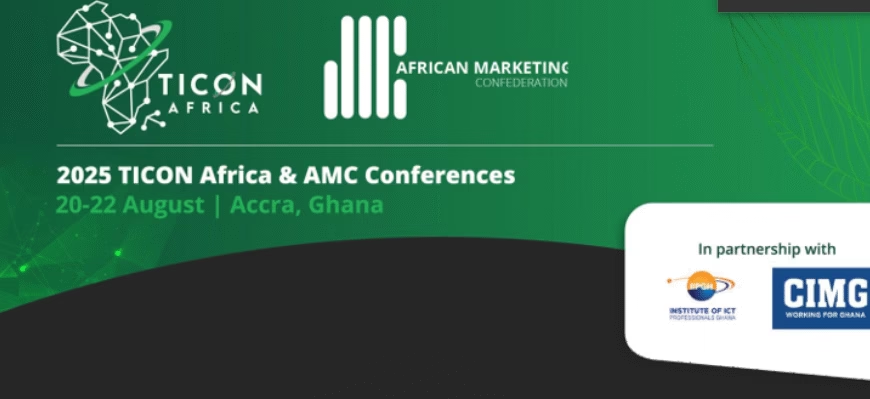Ghana is rapidly emerging as a continental leader in digital transformation, driven by a bold vision to build a smart, inclusive, and innovation-led economy. From infrastructure development to policy reform, the country is laying the foundation for a future where technology, data, and human capital converge to unlock new opportunities for growth and resilience.
From Digital Dependence to Digital Determination
At the heart of Ghana’s digital strategy is a decisive shift from digital dependence to digital determination. This means moving beyond the passive consumption of imported technologies and toward the active creation of homegrown solutions tailored to African realities. It means building robust infrastructure, fostering inclusive innovation, and regulating responsibly to protect citizens while enabling progress.
One of the most ambitious projects underway is the Ghana-UAE Tech and Innovation Hub in Dawa. This $1 billion initiative will span 25 square kilometres and is expected to attract over 11,000 global companies under the PCFC (Ports, Customs and Free Zone Corporation) umbrella, including tech giants like Google, Apple, Microsoft, Oracle, Meta, IBM, and Alphabet. The hub will serve as a magnet for talent, trade, and technology, with Phase One set to begin in 2026 and completion targeted for 2027.
Complementing this is the One Million Coders Programme, which aims to train one million Ghanaian youth over four years in artificial intelligence and machine learning, cyber security and data protection, and other essential digital skills, to thrive in the modern economy. Through partnerships with Huawei, MTN, Amazon Web Services, and Oracle, Ghana is building a generation of digital creators and problem-solvers equipped to lead in the Fourth Industrial Revolution. Ghana is also developing a National Data Exchange, a secure and interoperable platform for trusted public-private data sharing. This initiative will enhance transparency, efficiency, and evidence-based policymaking across sectors.
The National Identification System: A Single Source of Truth
A cornerstone of Ghana’s digital transformation is the National Identification System, spearheaded by the National Identification Authority (NIA). Through the issuance of the Ghana Card, the country has established a single source of truth for identity management, enabling seamless authentication across government services, financial institutions, healthcare, education, and more. The Ghana Card integrates biometric data and is linked to various national databases, including the Social Security and National Insurance Trust (SSNIT), the Ghana Revenue Authority (GRA), and the Electoral Commission. This interoperability is transforming service delivery, reducing fraud, and enhancing data accuracy across sectors. As of mid-2025, over 18 million Ghanaians have been enrolled, making the Ghana Card one of the most comprehensive digital identity systems on the continent. It is now a mandatory requirement for accessing public services, registering SIM cards, opening bank accounts, and even voting. This unified identity framework is enabling Ghana to build a digitally inclusive economy, where every citizen can participate securely and confidently.
Policy Reform and AI Leadership
Ghana’s Ministry of Communications, Digital Technology and Innovation is actively reviewing and updating legislation to reflect the realities of the digital age. This includes the development of a National AI Strategy, the transition of the National Information Technology Agency (NITA) into a regulatory body, and investments in digital infrastructure, innovation ecosystems, and data synchronization. The country has also convened a Ministerial AI Bootcamp, one of only two such exercises on the continent, to shape responsible AI governance and strategy. These efforts reflect Ghana’s ambition to become the AI capital of West Africa, driving innovation while safeguarding digital sovereignty.
Marketing: Africa’s Strategic Advantage
While technology builds the future, marketing tells the story. In Africa’s evolving markets, marketing is not just a tool, it is a strategic advantage. It connects innovation to people, builds trust, and drives adoption. It is how Africa can brand itself not as a continent of challenges, but as a continent of possibilities.
Ghana’s marketing institutions are playing a critical role in this transformation. By promoting local innovations, cultural heritage, and tourism assets, they are helping to shape global perceptions and unlock new markets. The synergy between marketing and technology is enabling small businesses to scale, startups to attract investment, and governments to engage citizens more effectively.
Pan-African Integration: The AfCFTA Opportunity
Ghana’s leadership in digital transformation is closely tied to its role in Pan-African integration. As host of the African Continental Free Trade Area (AfCFTA) Secretariat, Ghana is at the heart of efforts to create the world’s largest single market connecting 1.5 billion people across 55 countries. AfCFTA is more than a trade agreement; it is a blueprint for industrialization, innovation, and inclusive growth. Ghana is working closely with the AfCFTA Secretariat and member states to develop digital trade protocols, e-commerce platforms, and cross-border payment systems that will make trade faster, cheaper, and more inclusive.
Technology and marketing are critical enablers of AfCFTA. They can help African businesses reach new customers, optimize logistics, and compete globally. They can also support the harmonization of standards and the development of resilient supply chains across the continent.
Tourism: A Digital Gateway to Africa’s Culture and Commerce
Tourism is another sector where marketing, technology, and culture converge. Ghana’s Year of Return and Beyond the Return campaigns have demonstrated the power of storytelling, heritage, and digital engagement. These initiatives have attracted global attention and positioned Ghana as a gateway to African heritage and hospitality.
Africa must now scale these efforts continent-wide. Digital platforms can be used to promote destinations, streamline visa processes, and enhance visitor experiences. Imagine a continent where a tourist can plan a multi-country trip with a single app, pay seamlessly across borders, and experience the richness of Africa’s culture, cuisine, and creativity. That is the Africa we must build, an Africa that is open, connected, and celebrated.
Toward a Smart, Sovereign Africa
Ghana’s digital transformation is not just about infrastructure; it is about people. It is about creating a knowledge-based society and a smart economy. It is about promoting digital equity, enhancing climate resilience, and protecting consumers. It is about building a transparent and enabling environment for innovation and investment.
The country’s efforts are a model for the continent. They demonstrate that with vision, collaboration, and strategic investment, Africa can leapfrog legacy systems and build a future that is smart, sustainable, and sovereign.
A Continental Call to Action at TICON Africa and AMC Conference 2025
As TICON Africa and the AMC Conference 2025 convene under the themes “Accelerating Africa’s Digital Future: Innovation, Integration, and Inclusion” and “Thriving in Africa’s Evolving Markets: Trust, Trends, and Technology” respectively, Ghana’s digital transformation journey offers a compelling blueprint for the continent. Each subtheme from AI and emerging technologies to digital infrastructure, data governance, and future-ready skills finds tangible expression in Ghana’s strategic initiatives. The Dawa Tech Hub, the One Million Coders Programme, and the Ghana Card ecosystem are not just national milestones, they are continental models of what is possible when innovation meets intent. Hosted by the Institute of ICT Professionals Ghana and the Chartered Institute of Marketing Ghana and scheduled for August 20–22 at the Labadi Beach Hotel, this joint conference will be a powerful moment of convergence where policymakers, marketers, technologists, educators, and entrepreneurs unite to shape a smart, sovereign, and competitive Africa. The blueprint is here. The time is now. As Africa’s tech pulse beats stronger than ever, Ghana’s journey offers a blueprint for what is possible. It is a call to action for governments, businesses, and citizens to embrace innovation, invest in talent, act boldly, collaborate deeply and build the Africa we want.
Author: Richard Kafui Amanfu | Executive Director | Institute of ICT Professionals Ghana (IIPGH).
For comments, please contact: +233 24 435 7006 or email: richard.amanfu@iipgh.org





